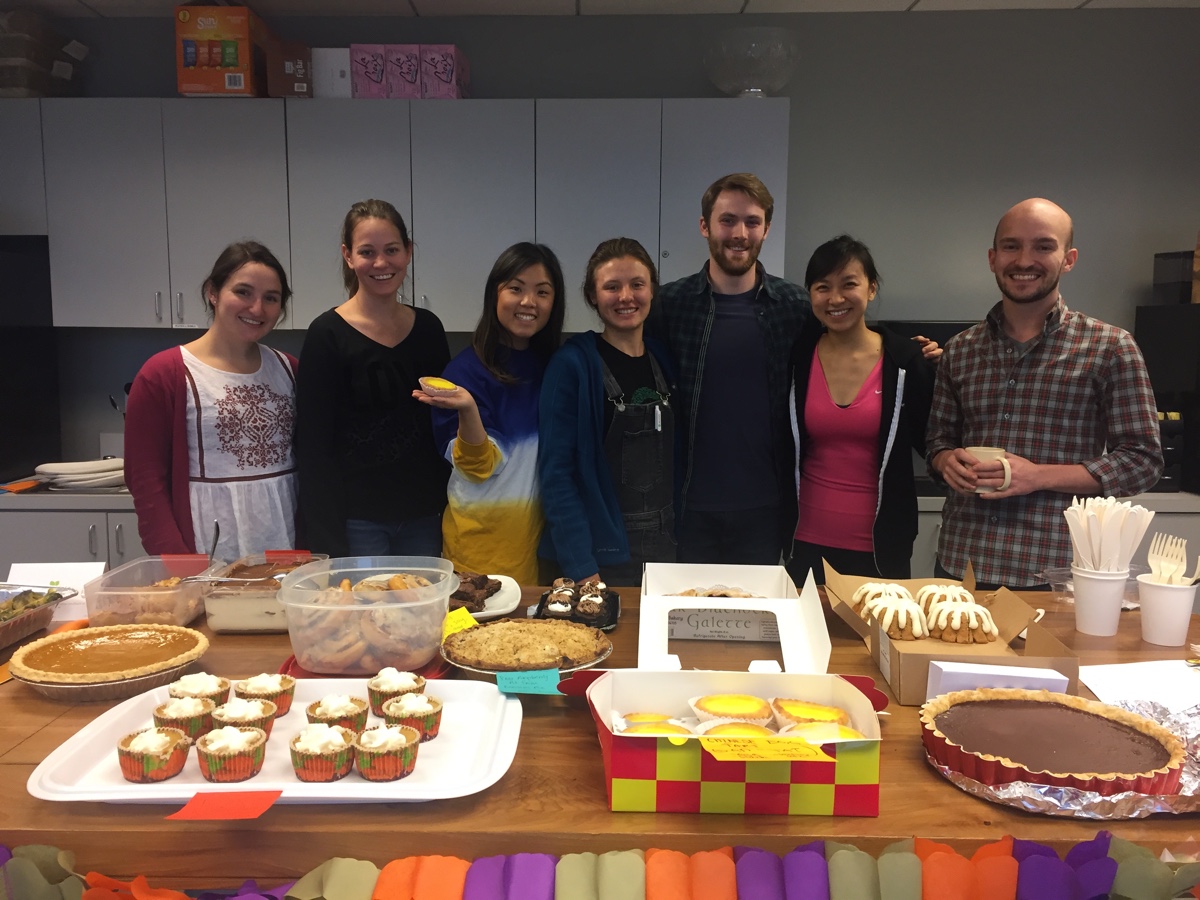-
Creative + Innovative
Impossible is nothing for our team.
We were originally told that building a cross-browser extension that would work across the web would be impossible. Our browser plugin now works in all major browsers (Chrome, Safari, Firefox, and even Edge), and this was done with just a handful of engineers. See our tech blog article about it here.
Engineers are a critical part of our product development process. Every year, we have two full-day hackathons for engineers to prototype and develop whatever they want, and Hackathon projects often become the basis for new feature development. Projects have ranged from a sentiment analysis feature for text, to a blazing fast autocomplete feature, to virtual reality features.
We also heavily rely on the ingenuity of our engineers for some of our most critical in-house tools. For example, when we outgrew the basic functionality provided by third-party tracking tools, a team of two engineers built our own product metric tracking and querying dashboard from the ground up. Similarly, when out-of-the-box third-party A/B testing tools were not customized enough for us, we built our own framework for running tests.
We strive to foster and incorporate engineering creativity. That’s why every other Friday for us is a fun day –– a time to explore new tools and technologies, read up on the latest industry news, and hack up widgets and tools just for fun.
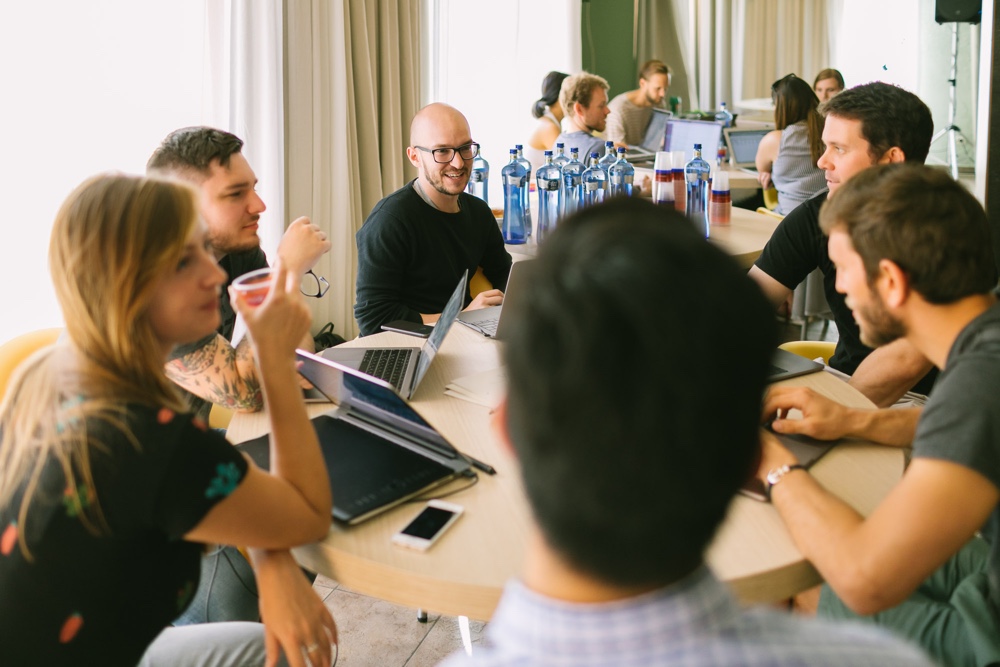
-
Cutting-Edge Technologies
A lot of what we do hasn’t been done before.
In fact, when Grammarly was founded in 2008, the concept of using AI to facilitate communication was a completely new concept. We managed to build something that was profitable right from the get-go because we were interested in solving problems at the next frontier, and we still continue to be today. We’re always ready to try out and adopt new technologies (check out our tech stack below for the variety of languages, tools, and frameworks we use both internally and in production). And we’ll often customize open-source tools for our own use, like building a custom layer on top of Docker.
It’s also very common for our engineers to spontaneously give talks and tutorials on the things that interest them. We have a group of functional-programming evangelists, and one of the most recent talks was called “Fighting God Object with Monads.”
Check out our tech blog for the challenges we’re working on.
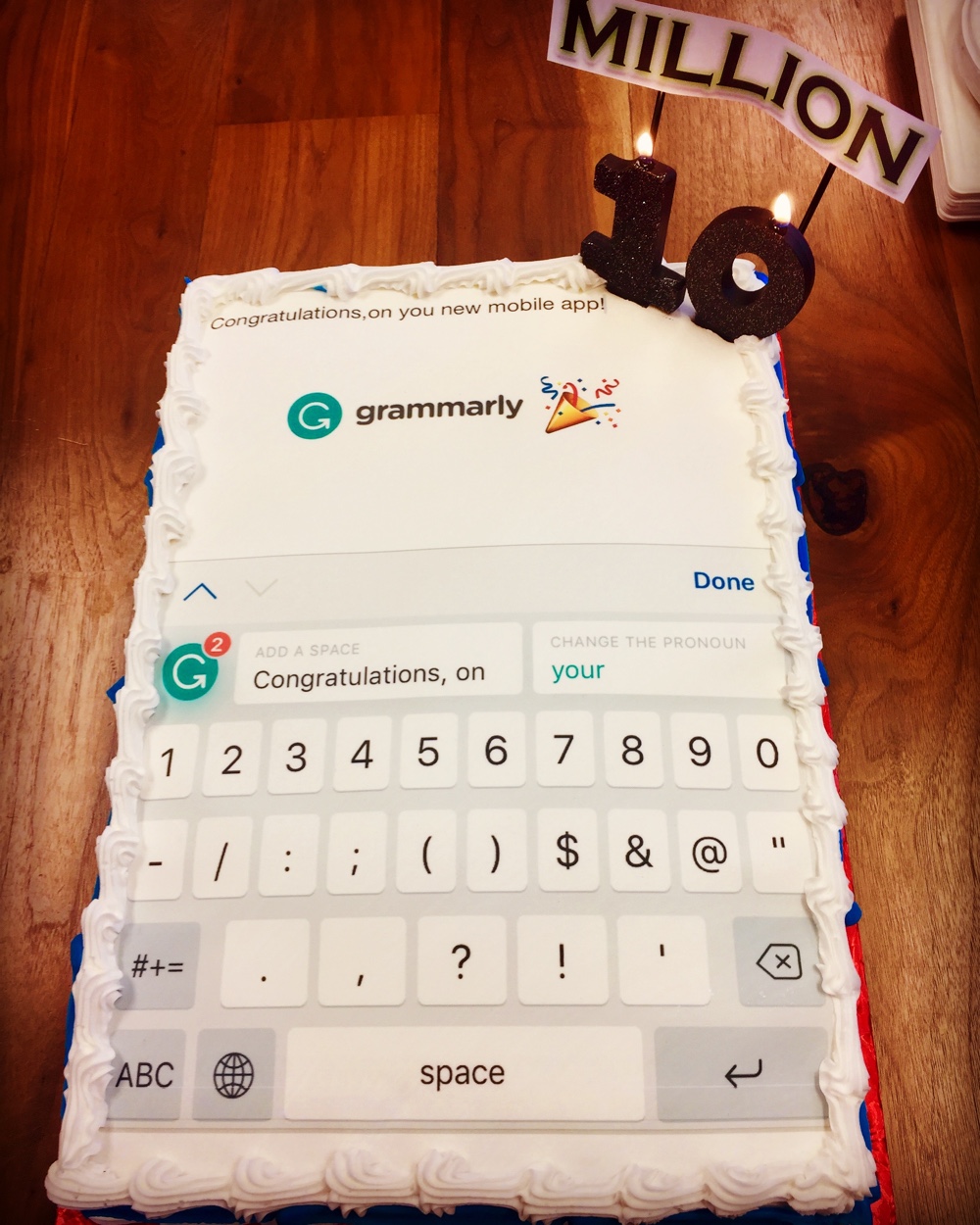
-
Impressive Team Members
Many of our team members are not only technical wizards, but they also have an incredible array of interests outside of work.
Our engineering team is split between Kyiv, San Francisco, and New York, and each location is a hub of amazingly talented and dedicated people.
One of our youngest engineers has given 22 talks in five countries over the last three years about various frontend topics. In doing so, he has gradually overcome a childhood habit of stuttering. Other team members have completed Ironman competitions, marathons, and triathlons. One of our engineers is an international algorithm competition winner. And yet others paint, sing, rock-climb, rap, and dance hip-hop. Another one of our engineers is a former lawyer and teaches at Berkeley Law. One of our product managers is publishing a fiction novel, and yet another makes a mean tiramisu. Get to know some of us on GitHub.
-
High Employee Retention
We are a tightly knit bunch with many engineers who have been with Grammarly for 4-6+ years.
Instead of presuming why our engineers have stayed with Grammarly for so long, we decided to ask them. Here’s what they said:
Acquisition team eng for six years on why he’s chosen to stay at Grammarly:
- Still many opportunities to learn and improve your engineering skills
- Enough freedom to make technical decisions, select frameworks, etc.
- Visible impact on the product
- Very nice team
- Useful product
Backend engineer, four years:
Mainly because of the team, exceptional engineers, also the great level of trust between engineering and executive teams; Interesting domain—in nlp, there are still a lot of issues waiting to be solved solved. Also, Grammarly is a mature business, profitable since 2009, whereas a lot of other companies are driven by the optimism of their investors.
Frontend engineer, 5 years:
I think I stayed mostly because I had a lot of possibilities to work on things that interest me.
It is also super fun to own or work on user-facing projects, meaning that the code you write will be running on users' computers and making an impact. Some of the problems I got to work on were also non-trivial, which adds to the fun.
Frontend engineer, 6 years:
- Responsibility. For a long time, I led the extension and editor team because I wanted to solve vital problems that took several years.
- Friendship, partnership. I have several close friends here. They kept me here as well.
- Financial upside. Grammarly was a trade off for me because I originally never wanted to work full time in a company that wasn’t my own. As I got equity and leverage to influence its growth, this deal became good enough for me to work here and feel like I’m not losing my entrepreneurial dreams. I always felt like it’s my business in many dimensions.
- Option to move to US to get an experience of living in a different country.
- Curiosity. It is interesting to build such a complex system as Grammarly.
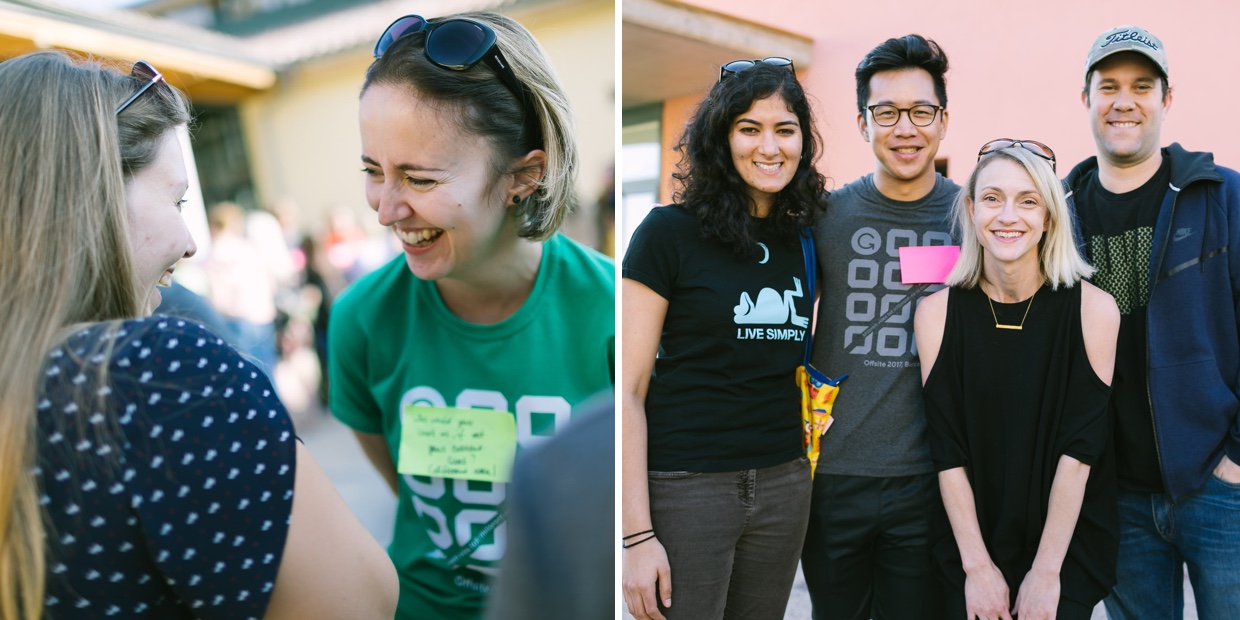
-
Cross-Department Collaboration
No team is effective in a silo.
There’s a high degree of information sharing and collaboration among engineering teams and between engineering, marketing, sales, and support. We all build tools that are relied on by one another. It’s not uncommon for engineers to participate in other teams’ standups so we maximize cross-pollination of ideas. Many engineers have made pull requests in at least half a dozen repos across the organizations, and engineers are always welcome to contribute to another team. Engineers are also encouraged to take ownership of their features and work side-by-side with business owners even in the ideation phase of a feature. So you’ll often find engineers not only advising on technical feasibility, but also working directly with the product team to improve design and user flows.
Information sharing across teams is so important to us that for the past two years, we have flown our entire team to one location for our offsite. In 2016 it was in Greece, and in 2017 it was in Spain. One of the highlights from our 2017 offsite was a blindfolded walk in the woods where we had to lean on other team members to find our way. It’s a good metaphor for the amount of trust we have in one another and the degree to which we are comfortable relying on one another.
Take a look at our yearbook from last year.
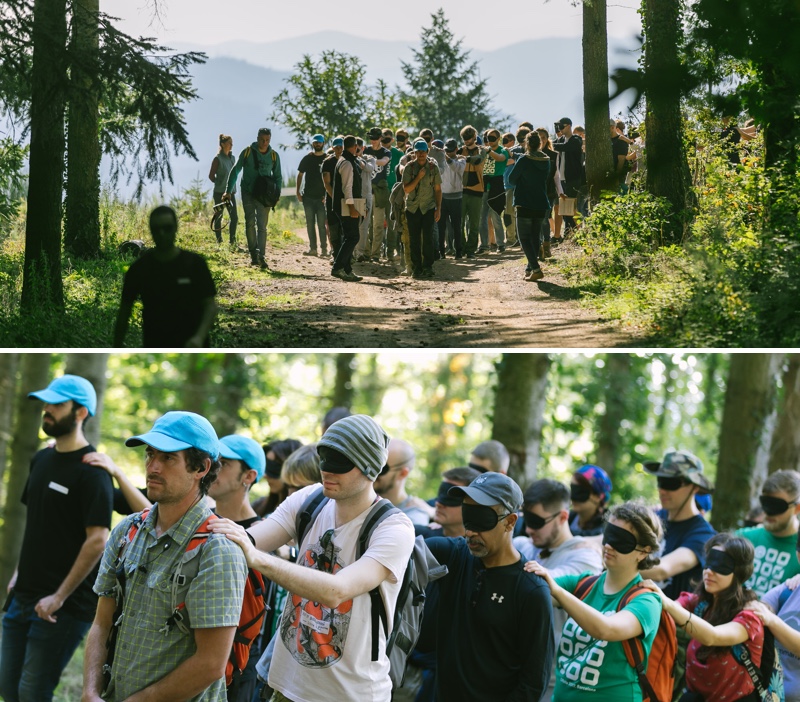
-
Fosters Psychological Safety
At Grammarly, we don't point fingers or blame people for mistakes.
For example, the way that our post-mortems are structured is generally about what we can learn about a mistake/bug/outage, and what next steps to take (as opposed to turning into a whodunit). People are comfortable admitting it if they had an unproductive day, or if they have a personal issue that prevents them from being able to fully focus on work.
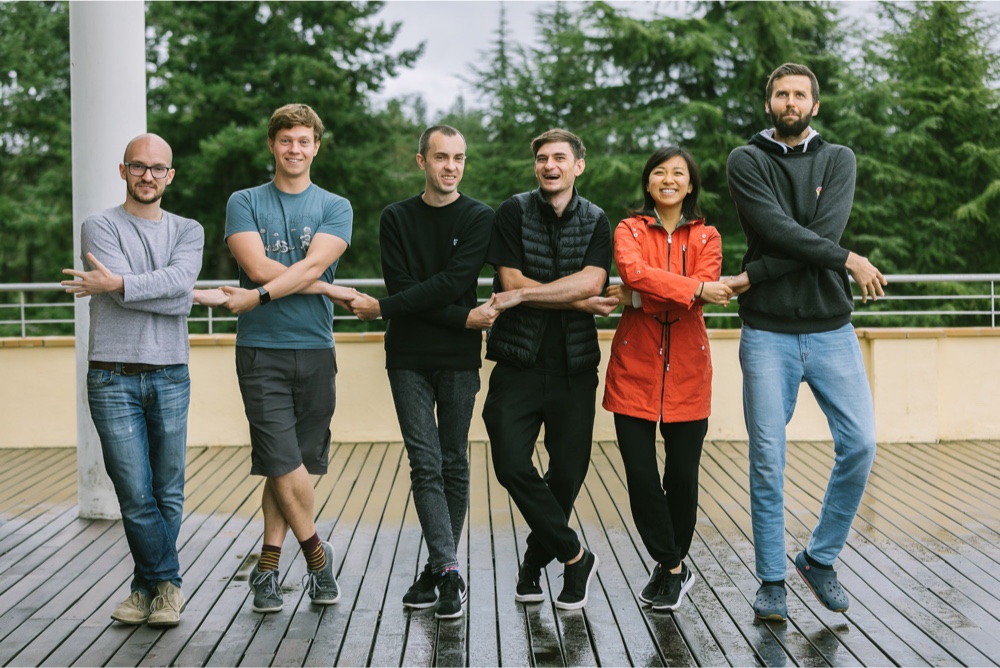
-
Eats Lunch Together
The start of lunch every day is announced by the ringing of a cowbell –– perhaps the most highly anticipated sound of the day.
Lunch is a sacred time for us to relax, unwind, connect, and play. At lunch, you can find us debating the latest technologies, showing one another pictures from recent trips, and playing ping-pong. A warning for your waistline: at lunch we love to celebrate the birthdays and anniversaries of our illustrious team members, so be prepared to eat a lot of cake! Fear not, though, because we’re also committed to our physical health. We have a dedicated group of team members who plank for a minute every two hours during the workday to keep up our energy levels (our Slack channel is called #workhardplankhard –– all are welcome). We are very spirited ping-pong players. Yoga is also offered every other week.
